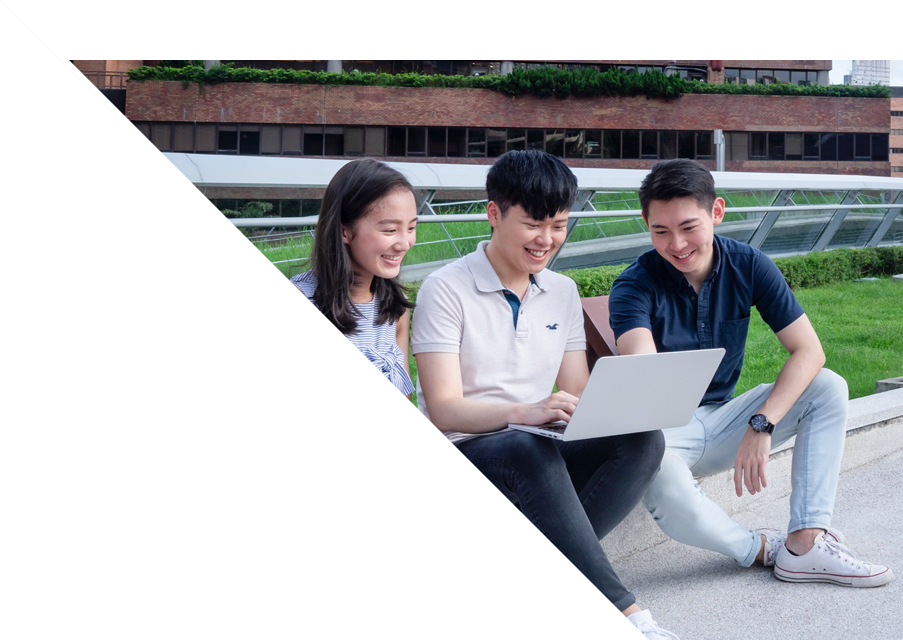Sept 2024 Entry
4 years
Accumulation of at least 121 (for Biomedical Engineering stream students) or 131 (for Biomedical Engineering with Prosthetics and Orthotics stream students) credits plus 5 Industrial Centre training credits and 4 (for Biomedical Engineering stream students) or 8 (for Biomedical Engineering with Prosthetics and Orthotics stream students) Work-Integrated Education training credits for the award of BSc (Hons) in Biomedical Engineering.
Dr Hin Chung LAU
The credit requirements of this scheme are indicative only. They are subject to review.
Students will be awarded the following award upon successful completion of the graduation requirements:
BSc (Hons) in Biomedical Engineering
The option of enrolment in one of the below-mentioned Secondary Majors is available to the students of BSc (Hons) in Biomedical Engineering. Admission to the Secondary Major is on competitive basis and subject to a different credit requirement for graduation. Please refer to the ‘Secondary Major Details’ section for more information.
Secondary Major in Artificial Intelligence and Data Analytics (AIDA)
Secondary Major in Innovation and Entrepreneurship (IE)
What's New
Biomedical engineering is recognised around the world as one of the fastest growing areas of innovation. It covers a wide spectrum of applications, such as devices used by health professionals in their diagnostic, therapeutic and rehabilitative practices; implants that are placed in patients for their health maintenance; prostheses, orthoses and assistive devices that are used by people with special needs to facilitate their daily activities; and healthcare products and exercise equipment for general health promotion.
This developing global field requires professionals who understand both the health issues that motivate these technologies and the engineering solutions that they offer. It needs individuals with a solid foundation in both health sciences and engineering technologies.
Our BSc (Hons) in Biomedical Engineering curriculum prepares students for such a challenging career. They have opportunities to take subjects in both life sciences and engineering and to integrate these concepts into interdisciplinary applications to improve human health.
In addition to building foundational knowledge through classes on campus, students engage in practical learning through an industrial internship/clinical attachment (a 280 hour industrial internship for BME stream students and a 560 hour clinical attachment for BME with P&O stream students). These internships/attachments offer good opportunities for students to put what they have learned into practice and accumulate work experience for their future careers. The internships/attachments take place in industry settings and hospitals, and some of our students participate in overseas placements (e.g. in Canada, China, Czech Republic, Japan, Singapore, the UK and the USA).
Exchange opportunities are available with our overseas partner institutes:
- Jonkoping University, Sweden (ju.se/en/study-at-ju/our-programmes/bachelor-programmes/prosthetics-and-orthotics);
- Metropolia University of Applied Sciences, Finland (www.metropolia.fi/en/academics/degree-programmes-in-finnish/prosthetics-and-orthotics);
- University of Pennsylvania, USA (www.seas.upenn.edu/be);
- University of Strathclyde, UK (www.strath.ac.uk/engineering/biomedicalengineering/); and
- Washington University in St Louis, USA (bme.wustl.edu).
Students also have opportunities to join the Faculty-level and University-level exchange programmes.
Professional Recognition
The BSc (Hons) in Biomedical Engineering programme has been granted full accreditation by the Hong Kong Institution of Engineers (HKIE).
Students who complete the prosthetics or orthotics courses offered in the programme are eligible to sit the certification examination of the Hong Kong Society of Certified Prosthetist-Orthotists (HKSCPO). The programme has also been accredited by the International Society for Prosthetics and Orthotics (ISPO) as a Category I professional programme.
Career Prospects
Professional Engineering Practice
-
Working in medical device industrial settings, hospitals, the government, medical device regulatory firms or other biomedical institutions, graduates apply their knowledge of biomedical engineering in various dimensions, such as clinical engineering, entrepreneurship, quality assurance and regulatory affairs, sales and marketing, and service engineering.
Professional Clinical Practice
-
Graduates work in hospitals and other healthcare settings in roles such as prosthetics and orthotics service providers, clinical and rehabilitation engineers, hospital scientific officers, and healthcare product customer service providers.
Basic and Applied Research in Engineering, Biology or Medicine
-
Graduates can conduct basic and applied research in universities, hospitals and industry settings.
-
The curriculum includes both academic studies and practical training in biomedical engineering.
-
Year 1 subjects such as Chemistry, Human Biology, Mathematics and Physics provide students with foundational knowledge of engineering technology. The scheme has two streams: Biomedical Engineering (BME) and Biomedical Engineering with Prosthetics and Orthotics (BME with P&O). Each student can select one stream according to their interests and strengths. They are asked to indicate their chosen stream at the end of Year 1.
-
Year 2 subjects further establish students' foundational knowledge in related engineering areas such as bioelectronics, biomechanics and computer programming.
-
Year 3 subjects further strengthen students' knowledge of biomedical engineering, give them the opportunity to combine biomedical and engineering ideas and develop their critical inquiry and thinking skills. A unique feature of our scheme is that students take the subject Biomedical Engineering Innovation for the Community for two consecutive semesters in Year 3, which gives them the opportunity to build an innovative medical device prototype. Students can start to take BME and P&O Electives on different topics according to their streams. Biomedical engineering industrial internships/clinical attachments are arranged during the summer semester to broaden students' experience in the field.
-
Year 4 includes advanced and applied biomedical engineering subjects and a Capstone Project. Students further take BME and P&O Electives according to their streams.
Information on the subjects offered can be obtained here.
Bachelor of Science (Honours) Scheme in Biomedical Engineering
Only students with a cumulative GPA of 2.70 or above can be considered for the enrolment of one of the below-mentioned Secondary Major:
- Secondary Major in Artificial Intelligence and Data Analytics (AIDA)
- Secondary Major in Innovation and Entrepreneurship (IE)
Features
-
Artificial intelligence and data analytics (AIDA) are the most prevailing technologies across various disciplines, Biomedical Engineering is no exception. The Secondary Major in AIDA aims to develop students’ holistic understanding of AIDA’s growing role in healthcare. Students will explore how AIDA strategies have been successfully deployed in the engineering and healthcare sectors, and understand the potential for AIDA to transform healthcare, from disease diagnosis to hospital optimisation.
-
Innovation and Entrepreneurship (IE) is moving healthcare forward, and the rapid technological improvement is impacting health and longevity. The Secondary Major in IE aims to develop students’ spirit and mindset of innovation and entrepreneurship, whether it is applied to the commercialisation of healthcare technologies or to problem-solving in general. Students will acquire knowledge and techniques critical to the analysing, planning, and implementing of financially viable and technically feasible innovation and entrepreneurship. Students are provided with hands-on experience in innovative and entrepreneurial activities.
Remarks
The Secondary Major-offering Department may set a quota and additional admission requirements apart from the above GPA requirement. Students must apply to and obtain approval from the Department of Biomedical Engineering, not later than the commencement of the second year of study, to be admitted to the Secondary Major.
Satisfy the University's General Entrance Requirements.
Please click here for the subject weightings for 2024/25.
There is no compulsory subject requirement. Preferred subject(s) with the highest weighting for admission score calculation include(s):
2023/24 Average Score: Any Best 5 Subjects (with Subject Weighting) = 227.2
For further information, please contact:
the General Office (tel.: 3400 8577; email: bme.info@polyu.edu.hk).
Required
To evaluate applicant's potential and interest in the scheme, and to observe student's communication skills, logical thinking, and interpersonal skills.
15 minutes
Suitable applicants will be invited for interview.
Required
If applicable
To evaluate applicant's potential and interest in the scheme, and to observe student's communication skills, logical thinking, and interpersonal skills.
15 minutes
Selected applicants will be invited for interview.









